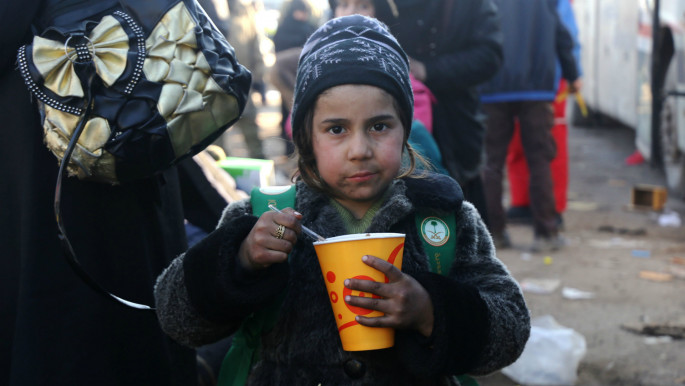Syria crunch-talks set for Kazakhstan: The players, the agendas
However, ahead of talks each side appears to have opposing ideas about the intentions of the negotiations.
In the build up to talks in Astana this week Syrian President Bashar al-Assad has called on rebel groups to lay down their weapons in exchange for an amnesty deal.
The players, and agendas
However, rebels - who will be lead by Mohammad Alloush, head of the Army of Islam, during negotiations - have said they their focus will be on reinforcing a tentative nationwide ceasefire brokered by Russia and Turkey last month.
In particular this ceasefire has struggled to hold in Wadi Barada, a contested valley located close to Damascus that supplies the majority of the capital’s mains water.
A council of nine legal and political advisors from the opposition High Negotiations Committee (HNC) umbrella group will also be present in Astana.
 |
Concern has been raised by opposition activists that the relative inexperience in political talks of the rebel delegation could swing negotiations in favour of Damascus. |  |
Speaking on Wednesday, Russian Foreign Minister Sergei Lavrov said that all opposition groups were invited to attend talks with the exception of those linked to the Islamic State group or the al-Qaeda linked Jabhat Fateh al-Sham.
Talks, brokered by Moscow and Russia, follow the Syrian regime’s victory in the previously contested city of Aleppo in December 2016, an event that greatly swung the ongoing conflict in the favour of Damascus.
While figures including Jaafari represented in Damascus’ delegation have considerable experience in negotiations, concern has been expressed by opposition activists that the relative inexperience in political talks among the rebel delegation could swing negotiations in favour of the Assad regime.
 |
| More than half of Syria's population has been displaced by the ongoing conflict. Previous negotiations have failed to stymie violence [AFP] |
Any role for Trump, the UN?
It remains unclear whether the US will be present in Astana having played no role in the Russian-Turkish brokered ceasefire that came into place in Syria in late December, and has seen the mutually suspicious states embark in joint operations targetting Islamic State-group militants in the town of al-Bab in Aleppo province despite lingering differences over a resolution to the conflict.
However, the freshly inaugurated Trump administration is said to have received an invitation despite Iranian rumblings.
Iran is set to be represented in Astana by Deputy Foreign Minister Hossein Jaber Ansari, according to Iranian media reports with analysts suggesting that Tehran views negotiations as an opportunity to increase its regional influence having played a decisive role in regime victory in Aleppo.
France, Britain, and EU figures will also be present at talks, according to informed sources who spoke to AFP.
It remains unclear how long talks in Astana will last.
Previous negotiations towards an end to the conflict in Syria overseen by the UN have failed to stymie ongoing conflict and violence. While the UN has been invited to Astana the organisation’s role in bringing about the talks has been overshadowed by that played by Russia and Turkey.
Agencies contributed to this report





 Follow the Middle East's top stories in English at The New Arab on Google News
Follow the Middle East's top stories in English at The New Arab on Google News
![The UAE is widely suspected of arming the RSF militia [Getty]](/sites/default/files/styles/image_330x185/public/2024-11/GettyImages-472529908.jpg?h=69f2b9d0&itok=Yauw3YTG)
![Netanyahu furiously denounced the ICC [Getty]](/sites/default/files/styles/image_330x185/public/2024-11/GettyImages-2169352575.jpg?h=199d8c1f&itok=-vRiruf5)
![Both Hamas and the Palestinian Authority welcomed the ICC arrest warrants [Getty]](/sites/default/files/styles/image_330x185/public/2024-11/GettyImages-2178351173.jpg?h=199d8c1f&itok=TV858iVg)